Francesco Moser inducted into the Giro d’Italia Hall of Fame
Italian won 1984 Giro, Paris-Roubaix three times and beat Merckx’s Hour Record
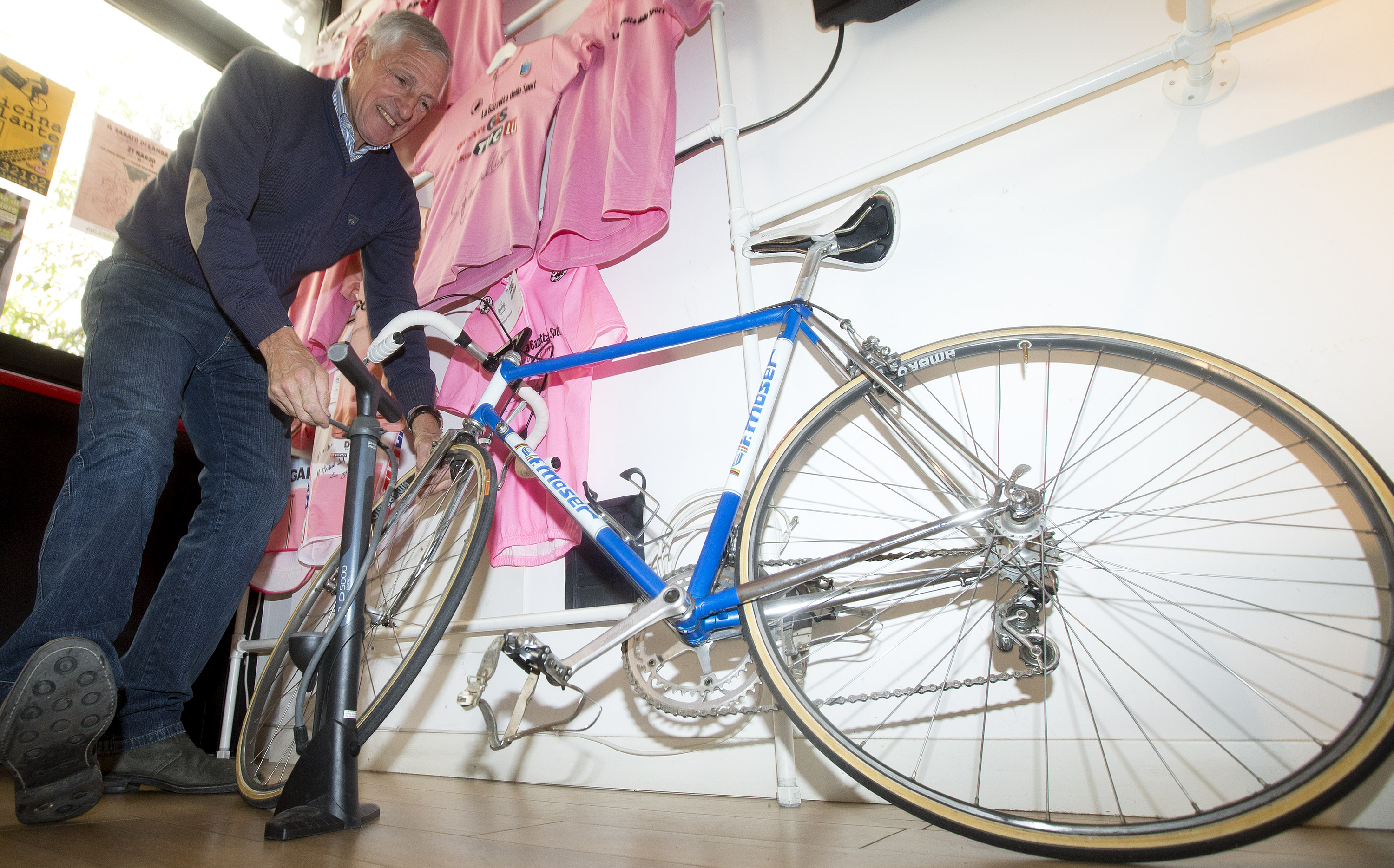
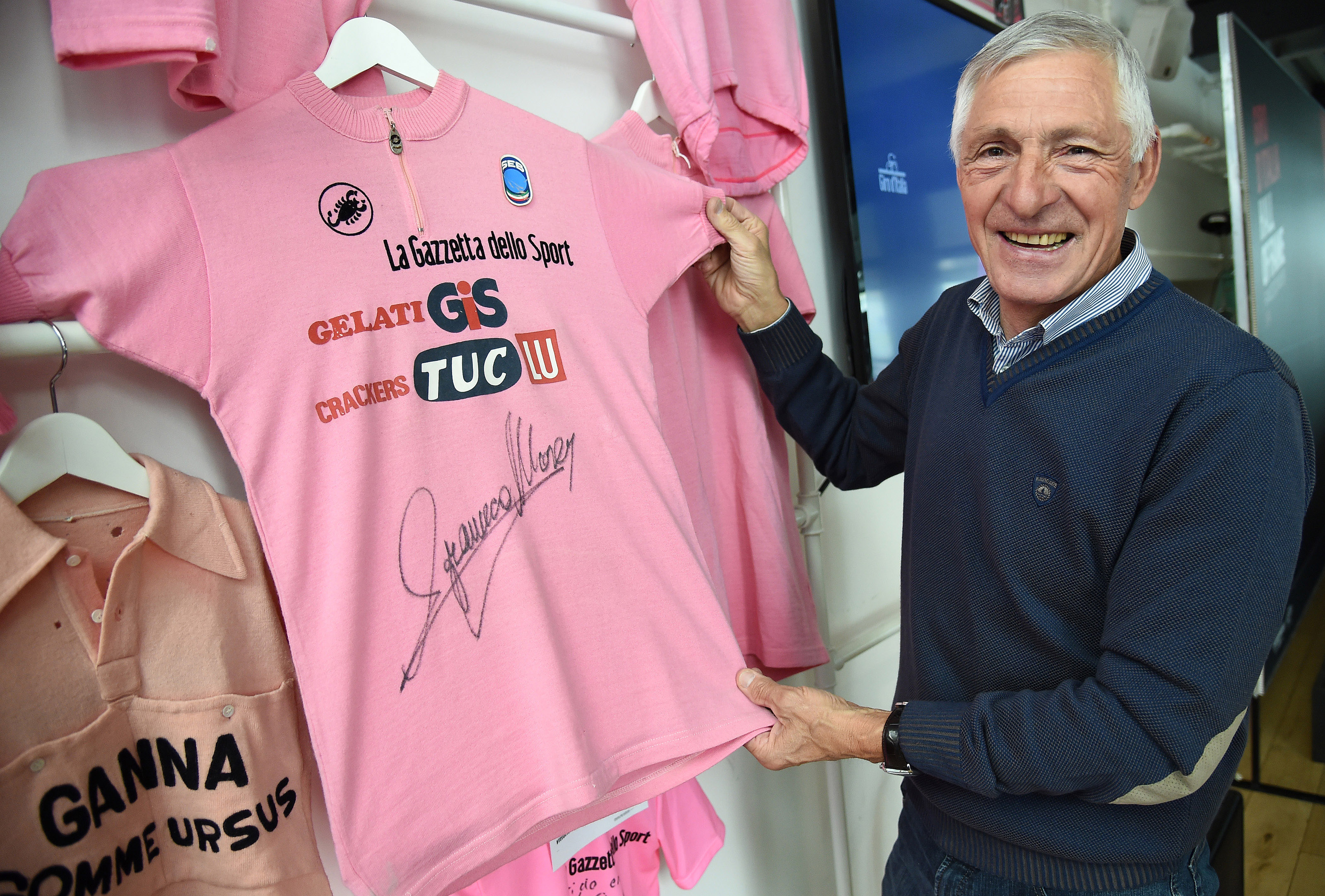
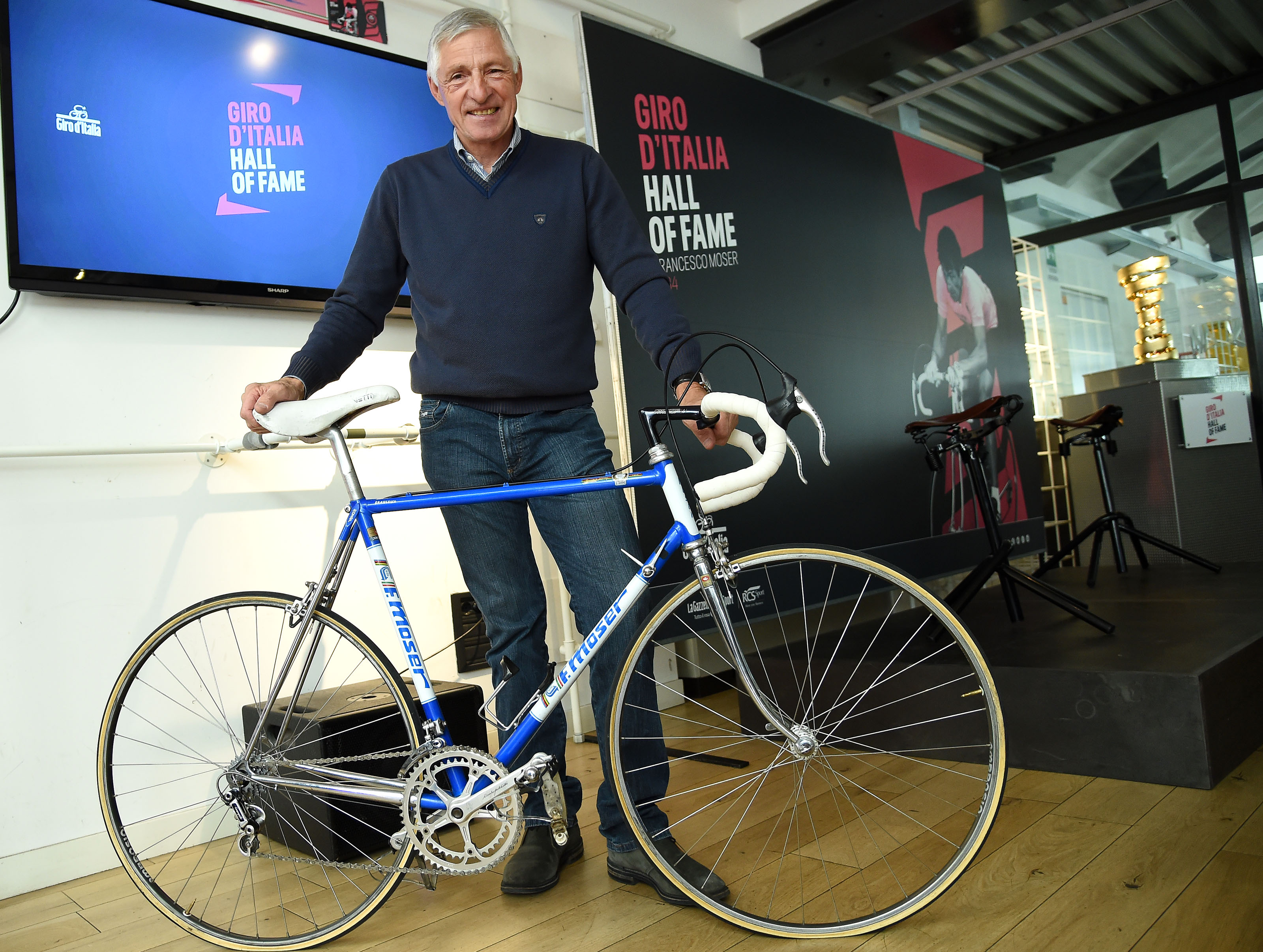
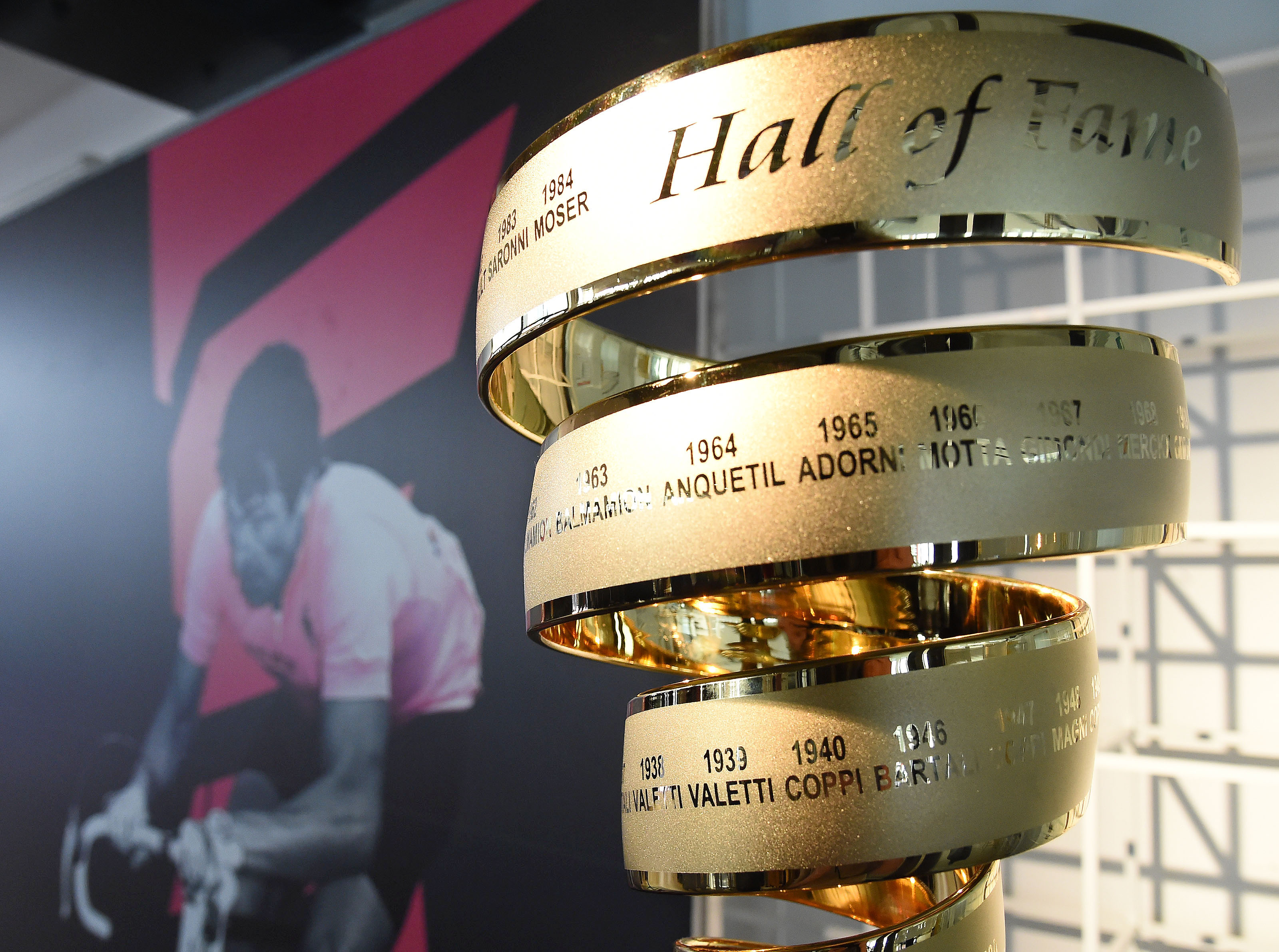
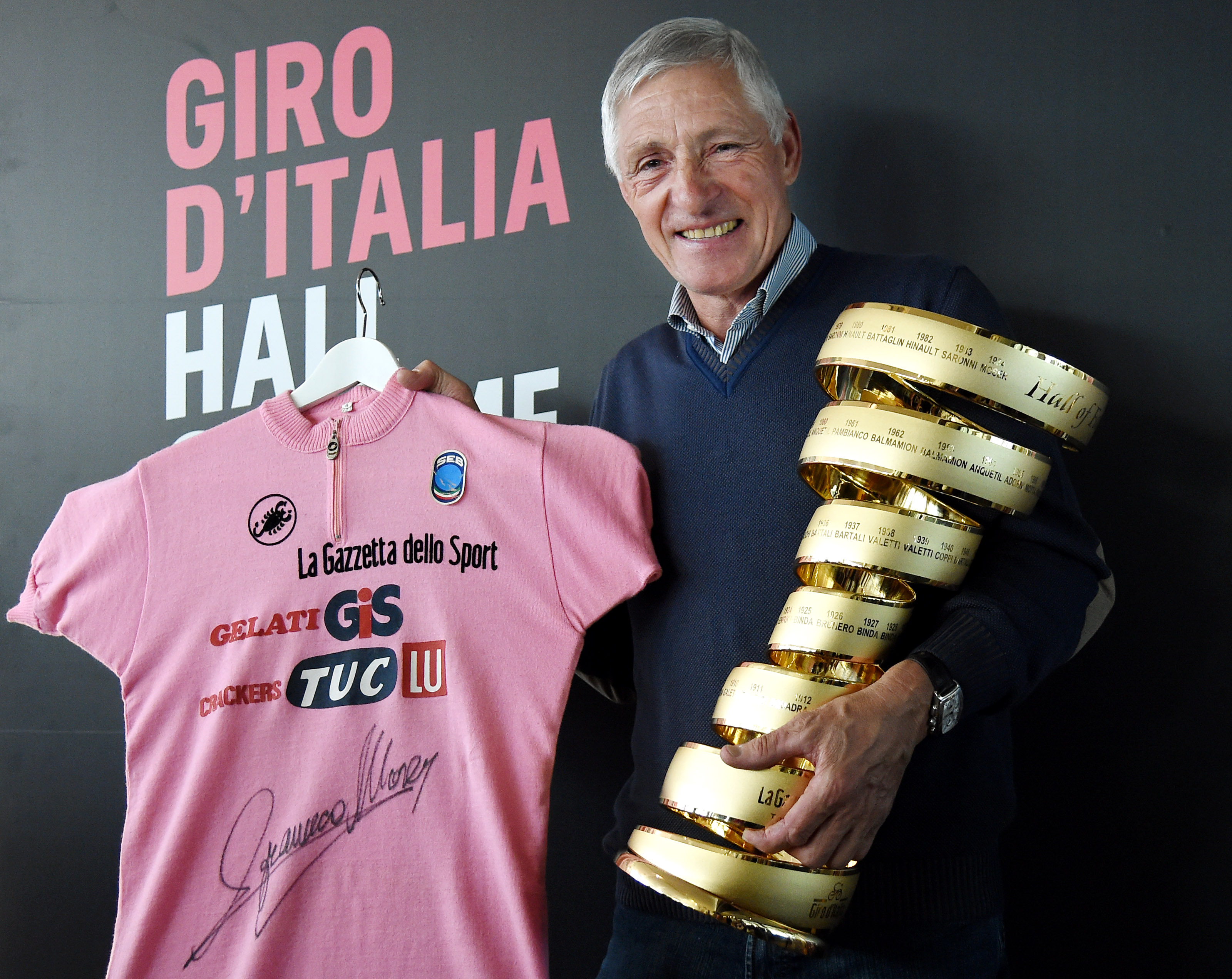
Francesco Moser has been inducted into the Giro d’Italia Hall of Fame in a special event in Milan. Moser is the fourth rider to be inducted for his victory and follows on from Eddy Merckx, Felice Gimondi and Stephen Roche.
Now 63, Moser’s career spanned several generations. He turned professional in the early seventies and raced against Merckx, finishing seventh in the 1975 Tour de France and winning the best young rider’s white jersey. He focused on the cobbled Classics and the Giro d’Italia for the rest of his career, winning Paris-Roubaix in 1978, 1979 and 1980. He also won the Tour of Lombardy in 1975 and 1978, Gent-Wevelgem in 1979 and Milan-San Remo in 1984. He was world road race champion in 1977 in San Cristobal but also missed on a second title several times. He often clashed for Italian team leadership with eternal rival Beppe Saronni, while Bernhard Hinault was often his nemesis at the Giro d’Italia. Moser won a total of 23 stages at the Giro d’Italia, one more than Fausto Coppi.
Moser was in the twilight of his career when he teamed up Professor Francesco Conconi to take advantage of modern sports science methods to break the Hour Record. A young Michele Ferrari was also part of his coaching team and Moser used a heart rate monitor, an aero time trial position and disc wheels. He is reported to have confessed to undergoing blood transfusions –these were only made illegal after the 1984 Olympic Games, but later denied it. He also set the seal level hour record in 1986, with 12000 people packing into the Vigorelli velodrome to see him in action.
Born in the Dolomite village of Palu di Giovo, Moser is part of a cycling dynasty, with Aldo, Diego and Enzo also racing as professionals. His nephew Moreno will ride Sunday’s Milan-San Remo with the Cannondale-Garmin team.
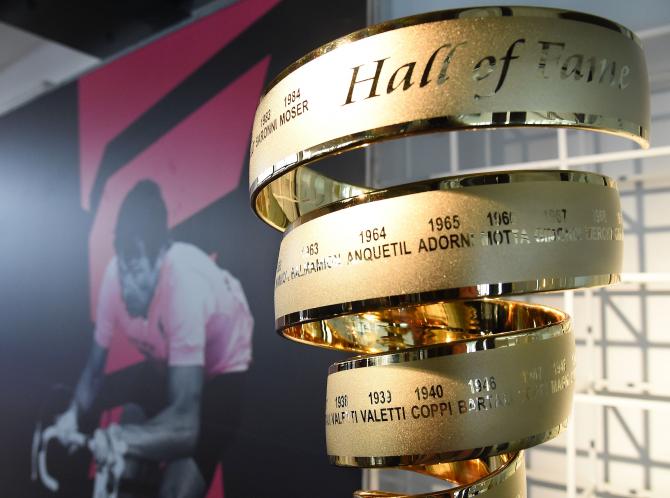
Before posing with the special Hall of Fame trophy that is a replica of the Giro d’Italia winner’s infinito trophy, Moser recalled his career with several special anecdotes.
He admitted that Eddy Merckx was the best rider he ever raced against, but revealed he helped Bernhard Thevenet defeat Merckx in 1975.
“Many people think 1984 was my best season but I think I was at my best in 1978 when I won my first Roubaix. In 1984 I picked my races and objectives carefully and I won the Giro d’Italia but it wasn’t the best moment of my whole career,” he claimed.
Get The Leadout Newsletter
The latest race content, interviews, features, reviews and expert buying guides, direct to your inbox!
Moser defeated Laurent Fignon to win the Giro, using his time trial skills and disc wheel to pull back a 1:21 gap in the final 42km time trial from Soave to Verona. The stage finished inside the Roman arena.
"I knew I had a big chance because in the time trials in Lucca and Milan, I’d gained more than three seconds per kilometre on Fignon. And I had a special bike, similar to the one I had used to set the world hour record,” he explained.
“The crowds that day were huge. I could hear them during the race and that motivated me. When I finished, I knew I had done a good time. I ended up beating him by more than two and a half minutes. The applause from the crowd inside the Arena was unforgettable. Poor Fignon! He lost two Grand Tours on the last day and in time trials, too. If either of those races had ended with a climb, it would have been a very different story. Fignon always blamed it on the television helicopter but we talked about it years after, even if he wasn’t easy to talk to and get along with.”
"To receive this beautiful trophy is special because I have a history with trophies: the famous cobblestone trophy at Paris-Roubaix was my idea, and I was the first winner ever to receive one. This trophy is unique too because the design means that they can inscribe the names of all of the winners in it. It’s nice to see your own name among all the previous winners, and all those who came afterwards. It’s going to be a big trophy a thousand year’s from now!"
Moser used his Hour Record form to win Milan-San Remo in 1984, when riding for the Gis Gelati team. He surged across to Marc Madiot, Robert Millar and Stephen Roche on the Poggio and went clear on the descent. He won alone, 20 seconds ahead of Sean Kelly. He picked Alexander Kristoff (Katusha) as the favourite for this year’s race.
“Milan-San Remo can end in many ways: if the peloton falls asleep, it can be even be won from a long distance breakaway. When the finish was on the Lungomare Calvino, it was easy to lose position in all those semi-curves, so it favoured the true sprinters. On Via Roma, the race is more open because the road is long and straight,” he pointed out.
“My favourite for Sunday is Kristoff. You have to be fast, but you handle the distance and get over the Cipressa and Poggio first. Then again, whenever there has been bad weather, the results have worked against the favourites. And there is talk of bad weather for Sunday."

Stephen is one of the most experienced member of the Cyclingnews team, having reported on professional cycling since 1994. He has been Head of News at Cyclingnews since 2022, before which he held the position of European editor since 2012 and previously worked for Reuters, Shift Active Media, and CyclingWeekly, among other publications.